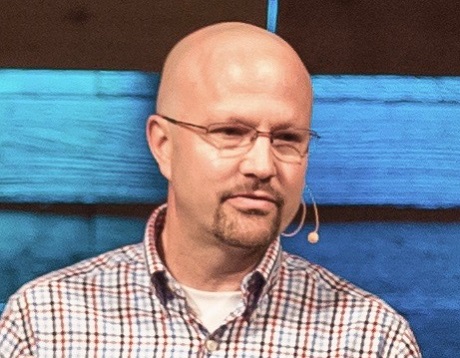- Calls to this hotline are currently being directed to Within Health, Fay or Eating Disorder Solutions
- Representatives are standing by 24/7 to help answer your questions
- All calls are confidential and HIPAA compliant
- There is no obligation or cost to call
- Eating Disorder Hope does not receive any commissions or fees dependent upon which provider you select
- Additional treatment providers are located on our directory or samhsa.gov
Self Help Guide for CBT & Binge Eating Disorder

Binge eating disorder (BED) is the most common eating disorder in the United States. [1] However, BED is also the eating disorder least likely to have higher levels of care, such as residential treatment, covered by insurance. This gap in coverage often leaves individuals who have BED feeling like they do not have the resources necessary to change behaviors.
To provide resources for individuals with BED, NAADAC, the Association for Addiction Professionals, has created a self-help guide that is free to download on their website. [2]
The guide, which is designed for adults, offers users “helpful tools they can use to gain control of their eating behavior.” It also addresses, on the first page of the manual, a concern that many individuals with binge eating disorder share: the desire to lose weight as a result of controlling the bingeing behaviors.
The NAADAC manual clearly states that the goal of the manual is not weight-loss, “This manual was designed to help individuals gain control of binge eating behavior and establish a more healthy eating pattern. Research to date has shown that while individuals who are able to control their binge eating are less likely to gain weight in the future, most do not experience significant weight loss by controlling their binge eating. ”
Based on a Cognitive Behavioral Therapy model (CBT), the guide has 15 sections and is designed to be worked on for about 2 hours every week. CBT is an approach that addresses unhelpful thoughts that result in unhelpful behaviors. In this way, the guide leads participants through 93 pages of self-reflection, challenging exercises, and taking inventory of thinking patterns.
Some of the sections are:
 Cues and Consequences, which explores what is commonly called “triggers,” those events that can leave someone more vulnerable to binge eating urges.
Cues and Consequences, which explores what is commonly called “triggers,” those events that can leave someone more vulnerable to binge eating urges.
Focusing on Hunger Cues helps users recognize that “one of the causes of extreme hunger is severe dietary restriction. Included in this section are recommendations for healthy eating to break the binge eating/fasting cycle that is so common with BED.
Styles of Thinking provides an introduction to what CBT refers to as maladaptive thinking. These include overgeneralizations, catastrophizing, minimization, and rationalization applied specifically to BED patterns.
A good portion of the guide leads the user to explore the connection between thoughts, feelings, and behaviors while offering practical tools for changing patterns and dealing with binge urges.
Combined with individual therapy and working with a registered dietitian, this free resource is a helpful tool for those wanting to make changes to their binge behaviors.
REFERENCES:
[1] National Eating Disorders Association. (2018, February 21). Information by Eating Disorder. Retrieved January 8, 2020, from https://www.nationaleatingdisorders.org/information-eating-disorder. [2] https://www.naadac.org/assets/2416/mitchell-cbt-for-bed-self-help-manual.pdfAbout the Author:
 Travis Stewart, LPC has been mentoring others since 1992 and became a Licensed Professional Counselor in 2005. His counseling approach is relational and creative, helping people understand their story while also building hope for the future. Travis has experience with a wide variety of issues which might lead people to seek out professional counseling help.
Travis Stewart, LPC has been mentoring others since 1992 and became a Licensed Professional Counselor in 2005. His counseling approach is relational and creative, helping people understand their story while also building hope for the future. Travis has experience with a wide variety of issues which might lead people to seek out professional counseling help.
This includes a special interest in helping those with compulsive and addictive behaviors such as internet and screen addiction, eating disorders, anxiety, and perfectionism. Specifically, he has worked with eating disorders since 2003 and has learned from many of the field’s leading experts. He has worked with hundreds of individuals facing life-threatening eating disorders in all levels of treatment. His website is wtravisstewart.com
The opinions and views of our guest contributors are shared to provide a broad perspective on eating disorders. These are not necessarily the views of Eating Disorder Hope, but an effort to offer a discussion of various issues by different concerned individuals.
We at Eating Disorder Hope understand that eating disorders result from a combination of environmental and genetic factors. If you or a loved one are suffering from an eating disorder, please know that there is hope for you, and seek immediate professional help.
Published January 13, 2020, on EatingDisorderHope.com
Reviewed & Approved on January 13, 2020, by Jacquelyn Ekern MS, LPC

The EatingDisorderHope.com editorial team comprises experienced writers, editors, and medical reviewers specializing in eating disorders, treatment, and mental and behavioral health.

